Ossama Obeid
BALSAM: A Platform for Benchmarking Arabic Large Language Models
Jul 30, 2025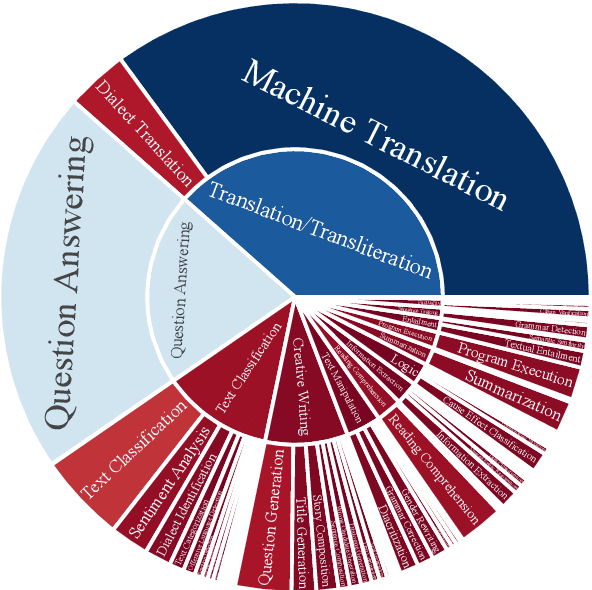



Abstract:The impressive advancement of Large Language Models (LLMs) in English has not been matched across all languages. In particular, LLM performance in Arabic lags behind, due to data scarcity, linguistic diversity of Arabic and its dialects, morphological complexity, etc. Progress is further hindered by the quality of Arabic benchmarks, which typically rely on static, publicly available data, lack comprehensive task coverage, or do not provide dedicated platforms with blind test sets. This makes it challenging to measure actual progress and to mitigate data contamination. Here, we aim to bridge these gaps. In particular, we introduce BALSAM, a comprehensive, community-driven benchmark aimed at advancing Arabic LLM development and evaluation. It includes 78 NLP tasks from 14 broad categories, with 52K examples divided into 37K test and 15K development, and a centralized, transparent platform for blind evaluation. We envision BALSAM as a unifying platform that sets standards and promotes collaborative research to advance Arabic LLM capabilities.
Arabic Diacritics in the Wild: Exploiting Opportunities for Improved Diacritization
Jun 09, 2024
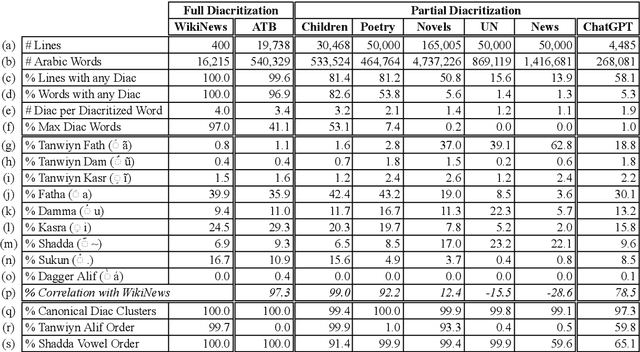


Abstract:The widespread absence of diacritical marks in Arabic text poses a significant challenge for Arabic natural language processing (NLP). This paper explores instances of naturally occurring diacritics, referred to as "diacritics in the wild," to unveil patterns and latent information across six diverse genres: news articles, novels, children's books, poetry, political documents, and ChatGPT outputs. We present a new annotated dataset that maps real-world partially diacritized words to their maximal full diacritization in context. Additionally, we propose extensions to the analyze-and-disambiguate approach in Arabic NLP to leverage these diacritics, resulting in notable improvements. Our contributions encompass a thorough analysis, valuable datasets, and an extended diacritization algorithm. We release our code and datasets as open source.
Camelira: An Arabic Multi-Dialect Morphological Disambiguator
Nov 30, 2022



Abstract:We present Camelira, a web-based Arabic multi-dialect morphological disambiguation tool that covers four major variants of Arabic: Modern Standard Arabic, Egyptian, Gulf, and Levantine. Camelira offers a user-friendly web interface that allows researchers and language learners to explore various linguistic information, such as part-of-speech, morphological features, and lemmas. Our system also provides an option to automatically choose an appropriate dialect-specific disambiguator based on the prediction of a dialect identification component. Camelira is publicly accessible at http://camelira.camel-lab.com.
The User-Aware Arabic Gender Rewriter
Oct 14, 2022


Abstract:We introduce the User-Aware Arabic Gender Rewriter, a user-centric web-based system for Arabic gender rewriting in contexts involving two users. The system takes either Arabic or English sentences as input, and provides users with the ability to specify their desired first and/or second person target genders. The system outputs gender rewritten alternatives of the Arabic input sentences (or their Arabic translations in case of English input) to match the target users' gender preferences.
MADARi: A Web Interface for Joint Arabic Morphological Annotation and Spelling Correction
Aug 25, 2018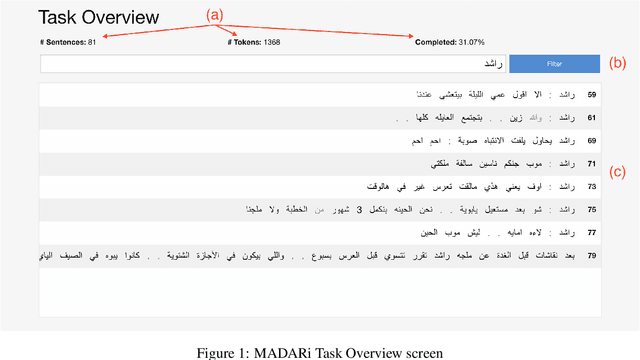
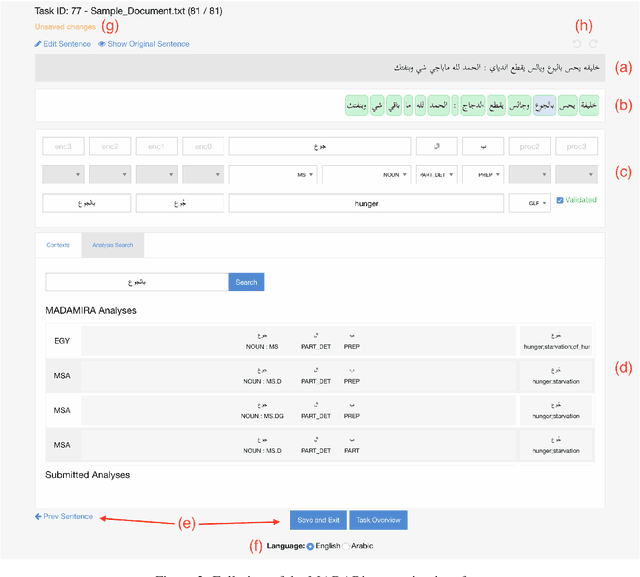

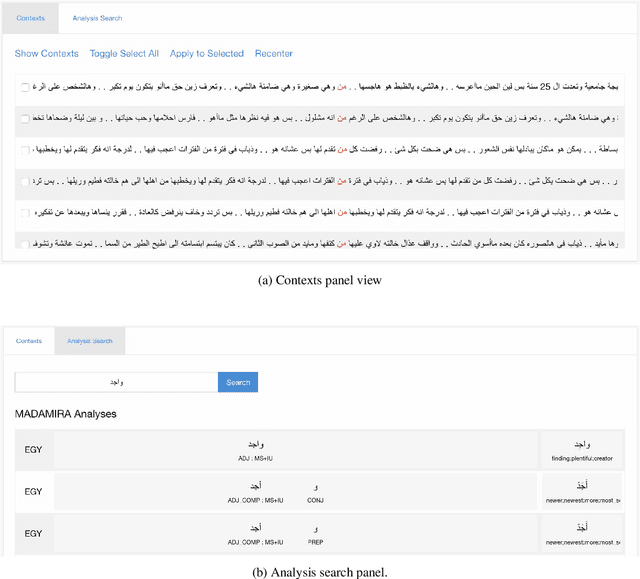
Abstract:In this paper, we introduce MADARi, a joint morphological annotation and spelling correction system for texts in Standard and Dialectal Arabic. The MADARi framework provides intuitive interfaces for annotating text and managing the annotation process of a large number of sizable documents. Morphological annotation includes indicating, for a word, in context, its baseword, clitics, part-of-speech, lemma, gloss, and dialect identification. MADARi has a suite of utilities to help with annotator productivity. For example, annotators are provided with pre-computed analyses to assist them in their task and reduce the amount of work needed to complete it. MADARi also allows annotators to query a morphological analyzer for a list of possible analyses in multiple dialects or look up previously submitted analyses. The MADARi management interface enables a lead annotator to easily manage and organize the whole annotation process remotely and concurrently. We describe the motivation, design and implementation of this interface; and we present details from a user study working with this system.
 Add to Chrome
Add to Chrome Add to Firefox
Add to Firefox Add to Edge
Add to Edge